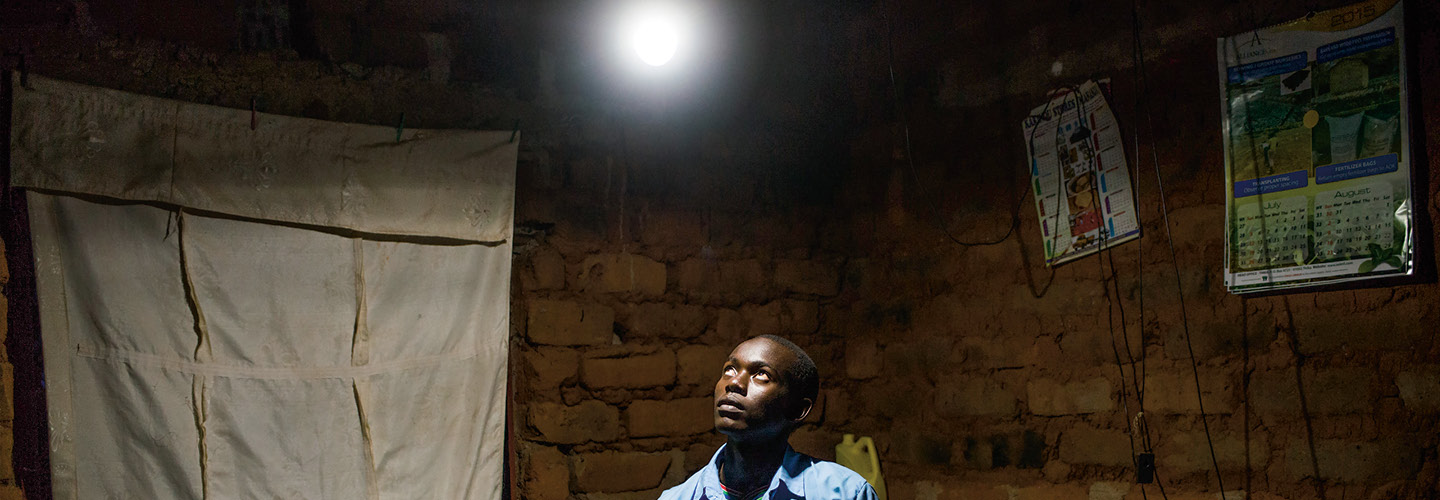For years, when the sun went down around 6 p.m. in Derrick’s* hometown of Rufunsa, Zambia, the whole community would plunge into darkness. Without access to electricity, Derrick and his neighbors in their rural village in southern Africa couldn’t simply flip a switch to turn on lights in their homes. No streetlamps illuminated nearby roads, nor did the glow of cell phones help brighten a room.
The utter darkness made it difficult for young people like Derrick, now 16, to do their homework at night.
But in 2019, the addition of a Light Library at Derrick’s school changed his life. The program works just like a traditional library, but instead of checking out books, students can borrow small solar lamps to take home. Now Derrick can sit under the light of the solar lamp for an hour and a half every night to complete his schoolwork.
An international charity called SolarAid set up the Light Library, and Derrick’s teacher, Mutinta Michelo, helps run it. Soon after the program began, Michelo noticed a difference in Derrick. She says he used to struggle in class and had difficulty reading and writing. But since Derrick has been able to use a solar lamp, his grades have improved.
“He has turned out to be the best reader in the school,” Michelo says.
Over the past decade, stories like Derrick’s have become increasingly common. Since 2010, more than 1 billion people worldwide have gained access to electricity, according to a report from several international organizations, including the World Bank.
For years, when the sun went down around 6 p.m. in Derrick’s hometown of Rufunsa, Zambia, darkness would envelop the whole community. Derrick and his neighbors in their rural village in southern Africa didn’t have access to electricity. Without it, they couldn’t simply flip a switch to turn on lights in their homes. No streetlamps lit up nearby roads, nor did the glow of cell phones help brighten a room.
The complete darkness made it hard for young people like Derrick, now 16, to do their homework at night.
But in 2019, a Light Library opened at Derrick’s school and changed his life. The program works just like a traditional library, but students don’t check out books. Instead, they can borrow small solar lamps to take home. Now Derrick can sit under the light of the solar lamp for an hour and a half every night to complete his schoolwork.
An international charity called SolarAid set up the Light Library. Derrick’s teacher, Mutinta Michelo, helps run it. Soon after the program began, Michelo noticed a difference in Derrick. She says he used to struggle in class and had a hard time reading and writing. But since Derrick has been able to use a solar lamp, his grades have gotten better.
“He has turned out to be the best reader in the school,” Michelo says.
Over the past decade, stories like Derrick’s have become more common. Since 2010, more than 1 billion people worldwide have gained access to electricity, according to a report from several international organizations, including the World Bank.

